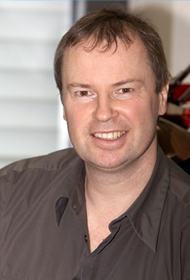 |
Peer Bork
European Molecular Biology Laboratory (EMBL), Heidelberg, Germany
“Analysis of the human gut microbiome”
BIOSKETCH
Peer Bork, PhD, is senior group leader and joint head of the Structural and Computational Biology unit at EMBL, a European research organization with headquarters in Heidelberg where he also serves as strategic head of bioinformatics. In addition, he holds an appointment at the Max-Delbrueck-Center for Molecular Medicine in Berlin. Dr Bork received his PhD in Biochemistry (1990) and his Habilitation in Theoretical Biophysics (1995). He works in various areas of computational biology and systems analysis with a focus on function prediction, comparative analysis and data integration. His group has published more than 500 research articles in international, peer-reviewed journals, among them more than 50 in Nature, Science and Cell. According to ISI (analyzing 10 years spans), Dr. Bork was for many years the most cited European researcher in Molecular Biology and Genetics and is now among the top 5 in Biochemistry and Biology. He is on the editorial board of a number of journals including Science and PloS Biology, and functions as senior editor of the journal Molecular Systems Biology. Dr Bork co-founded five biotech companies, two of which went public. More than 35 of his former associates now hold professorships or other group leader positions in prominent institutions all over the world. He received the “Nature award for creative mentoring” for his achievements in nurturing and stimulating young scientists. He was also the recipient of the prestigious “Royal Society and Academie des Science Microsoft award” for the advancement of science using computational methods and obtained a competitive “ERC advanced investigator grant”.
Website |
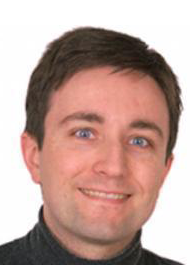 |
Lars Juhl Jensen
The Novo Nordisk Fundation Center for Protein Research, Denmark
“Medical Data Mining”
Clinical data describing the phenotypes and treatment of patients is an underused data source that has much greater research potential than is currently realized. Mining of electronic health records (EHRs) has the potential for revealing unknown disease correlations and for improving post-approval monitoring of drugs. In my presentation I will introduce the centralized Danish health registries and show how we use them for identification of temporal disease correlations and discovery of common diagnosis trajectories of patients. I will also describe how we perform text mining of the clinical narrative from electronic health records and use this for identification of new adverse reactions of drugs.
BIOSKETCH
Lars Juhl Jensen started his research career in Søren Brunak’s group at the Technical University of Denmark (DTU), from which he in 2002 received the Ph.D. degree in bioinformatics for his work on non-homology based protein function prediction. During this time, he also developed methods for visualization of microbial genomes, pattern recognition in promoter regions, and microarray analysis. From 2003 to 2008, he was at the European Molecular Biology Laboratory (EMBL) where he worked on literature mining, integration of large-scale experimental datasets, and analysis of biological interaction networks. Since the beginning of 2009, he has continued this line of research as a professor at the Novo Nordisk Foundation Center for Protein Research at the Panum Institute in Copenhagen and as a co-founder and scientific advisor of Intomics A/S. He is a co-author of more than 100 scientific publications that have in total received more than 9000 citations. He was awarded the Lundbeck Foundation Talent Prize in 2003, his work on cell-cycle research was named “Break-through of the Year” in 2006 by the magazine Ingeniøren, his work on text mining won the first prize in the “Elsevier Grand Challenge: Knowledge Enhancement in the Life Sciences” in 2009, and he was awarded the Lundbeck Foundation Prize for Young Scientists in 2010.
Website |
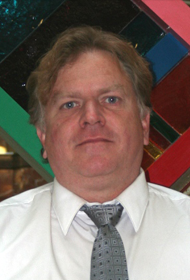 |
Warren Lathe III
Open Helix, US
“The Imperative of Diversity in Science: The necessity of broadening participation in the scientific endeavor”.
Though there has been success in the US in broadening access and participation in science education and careers, there still cultural, historical and legal challenges to guaranteeing all individuals have access to science education and careers. Dr. Lathe, current Science Policy Fellow at the National Science Foundation, will discuss the imperative of broadening access and participation in science education in research and US and international policies to do so.
Website |
 |
Ana Ribeiro de Vasconcelos
Laboratório Nacional de Computação Científica, BR
“Brazilian Bioinformatics activities in a nutshell”
Website |
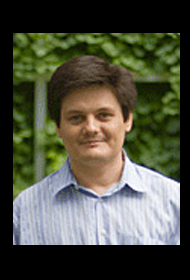 |
Shamil Sunyaev
Briham and Women’s Hospital/Harvard Medical School, US
“Human germ-line and cancer somatic mutation rates: biology, evolution and statistical genetics”
BIOSKETCH
The Sunyaev lab develops computational and statistical methods for the analysis of DNA sequencing data with the goal to understand the effect of mutations on molecular function, fitness and phenotype. The Sunyaev lab analyzes genetic variation in light of classic population genetics models, estimates parameters of demographic history and distribution of fitness effects of mutations in the human genome. The lab develops computational methods for predicting the effect of mutations and SNPs on function using comparative genomics, protein structure and functional genomics data. It is also developing statistical and computational methods for exome sequencing and candidate gene sequencing studies. The Sunyaev lab is also interested in heritability of complex traits and predictions of phenotypes based on genotypes.
Website |
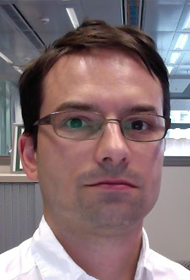 |
Roland Krause
University of Luxembourg, Luxembourg
“Pharmacogenomics for epilepsy”
Epilepsies affect about 3% of the European population in their lifetime. Existing anti-convulsant drugs have strong side-effects and fail in about 30% of patients. EpiPGX is a pharmacogenomics project with the long term aim to identify suitable drug treatment based on the genomic mark-up. Within the EpiPGX project, clinicians across Europe collaborate to assemble a sample collection with a detailed clinical phenotype. We provide data management and statistical support to the project. Genotyping and sequencing of this collection will enable a variety of analysis across questions such as the specics of adverse drug reaction, late response to drugs or general failure of control. I will show our recent progress in the project and our challenges in data analysis that require novel algorithms to tie in the variety of molecular and clinical data.
Website |
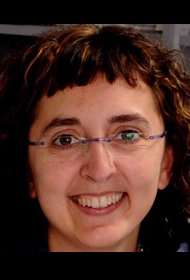 |
Francesca Ciccarelli
King’s College London, United Kingdom
“Systems biology approach to identify novel anti-cancer therapeutic targets”
Ongoing massive efforts to re-sequence thousands of cancer genomes are leading to the identification of an increasing number of genes that acquire somatic mutations during the disease onset and progression. From one side, such a high genetic heterogeneity complicates the identification of genes whose modifications exert a driver role in cancer. From the other side, however, it also offers a wide repertoire of genetic determinants to be screened as possible therapeutic targets. In my talk I will review our contribution to the characterization of cancer driver genes in terms of ‘systems-level’ properties that distinguish them from other human genes. I will then discuss how these properties can help in identifying cancer-specific targets to be used in therapy.
BIOSKETCH
I graduated in Pharmaceutical Chemistry at the University of Bologna, Italy and earned a PhD in Natural Science at the University of Heidelberg. I was research assistant in the group of Peer Bork at the EMBL, before staring my own group at the European Institute of Oncology in Milan. In late 2013 I have been appointed Reader (Associate Professor) in Bioinformatics and Genomics at the King’s College London. My research interests concern the study of the role played by genomic instability during the onset and progression of cancer. We use a combination of experimental and in silico approaches to produce and analyze cancer genomics data with the aim of rebuilding the evolution of tumors. We are also interested in studying the properties of cancer genes to identify novel anti-cancer therapeutics.
Website |
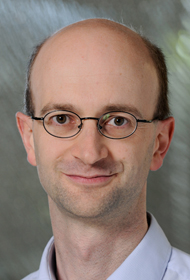 |
Christian von Mering
University of Zurich, CH
“Taking advantage of RNAi off-target effects: a new class of perturbation reagents”
Website |







